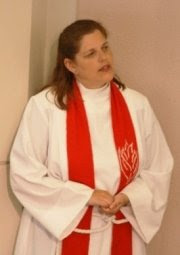If you want to discuss this week's piece come to one of the discussion sessions:
Sunday - 9:15 am; Tuesday - 6:15 pm; Thursday - 1:00 pm
I
cannot excuse my sins because of the example of my father, nor can I excuse
them because of the times, or because of the ill disposition that rules society
now, and do ill because everybody else does so. To say there is a rot, therefore the sheep
must perish, corruptions in religion have crept in and work in every corner and
therefore God’s sheep, simple souls, must be content to admit the infection of
this rot; that there is a murrain, and therefore cattle must die; superstition
practiced in many places, and therefore the strong servants of God must come to
sacrifice their obedience to it, or their blood for it. There is no such rot, no such murrain, no
such corruption of the times as can lay a necessity, or can afford an excuse to
those who are corrupted with the times. It is not such a peace as takes
away honor that secures a nation, nor such a peace as takes away zeal that
secures a conscience, so neither is it an observation of what others do or are
inclined to do but what truth and integrity you decline from that needs to be
considered.
It is not the sin of your father, not the sin of the times,
not the sin of your own years, that you should say in your old age, in excuse
of your covetousness, I have lived temperately, continently, all my life and
therefore may be allowed one sin for my ease in my old age. Or that you should say in your youth, I will
retire in my old age and live contentedly then with a little, but now, how vain
it would be to attempt to keep out the tide or quench the heat and impetuous
violence of youth. For if you think it
enough to say, I have only lived as others have live, you will find some
examples to die by also, and die as other old men and women, old in years and
old in sins, have died also: negligently or fearfully, without any sense a
tall, or all their sense turned into fearful apprehension and desperation.
They
are not such sins as those of that age need to commit, nor such sins as those
of your calling or your profession cannot avoid; so that you should say, I
shall not be believed to understand my profession, as well as others, if I do
not live by it as well as others do.
Is there no way to be a carpenter, except that after he has been made
warm by the chips, and baked, and roasted by it, it is necessary to make an
idol of the wood, and worship? Is there
no way to be a silversmith without needing to make shrines for Diana of the
Ephesians as Demetrius did? No way to be a lawyer without serving the passion
of the client? No way to be a preacher
without sowing pillows under great men’s elbows? It is not the sin of your calling that oppresses you. God has instituted callings for the
conservation of order in general, not for the justification of disorders in any
particular. For those who justify
their faults by their calling, have not yet received that calling from above,
which is where they must be justified and sanctified on the way and glorified
in the end. There is no lawful calling
in which you may not be honest.
You cannot excuse yourself by the unjust command of your
superior; nor the ill example of your pastor, whose life counter-preaches his
doctrine, for that shall aggravate his, but not excuse your sin; nor the influence
of stars, or such a working of a necessary and inevitable and unconditioned
decrees of God as may obstruct a religious walking in this life, or a happy
resting in the life to come. It is none of these, not the sin
of your Father, not the sin of the present times, not the sin of your years and
age nor of your calling, nor of the magistrate, nor of your pastor, nor of
destiny, nor of decrees, but it is your sin, your own sin.
What is sin? What are the sins we commit? How do we try to
excuse our sin?
John Donne (1571
-1631) was an unsuccessful lawyer who was urged to seek ordination by the king
and was made dean of St. Paul’s Cathedral.
Although he is better known today for his poetry, his sermons, prayers,
and meditations are among the great monuments of the English language.


No comments:
Post a Comment